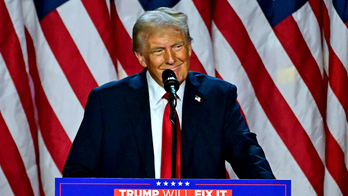China is buying up more U.S. farmland. Some lawmakers consider that a security threat
A new House panel on U.S.-China relations held its first hearing in prime time on Tuesday night, exploring threats posed by the Chinese government and possible bipartisan solutions.
Four witnesses — including H.R. McMaster, former president Donald Trump's national security adviser, and Tong Yi, a former secretary to prominent Chinese dissident Wei Jingsheng — spoke about issues involving national security, economic competition and human rights.
Over the course of three hours, they made a case for how the Chinese Communist Party has gained power over global markets and endangered American interests.
In a moment of rare bipartisan unity, lawmakers pledged to do more to reduce those threats and boost U.S. competitiveness.
"We may call this a strategic competition, but it's not a polite tennis match," said Wisconsin Republican Mike Gallagher, the committee chair. "This is an existential struggle over what life will look like in the 21st century."
Lawmakers characterized the U.S.-China dynamic as one that is complicated and needs immediate attention. Illinois Rep. Raja Krishnamoorthi, the committee's ranking Democrat, said the U.S. doesn't want a war — hot or cold — with China, but must work to deter aggression.
As they did in a Tuesday interview with Morning Edition, Gallagher and Krishnamoorthi were careful to distinguish between the Chinese government and its people, whom they see as victims of an oppressive regime.
They also stressed the need to avoid xenophobia and "anti-Chinese or Asian stereotyping at all costs." (Notably, the opening statements were disrupted by antiwar protesters holding signs including "China is not our enemy" and "stop Asian hate.")
"The CCP is counting on us being divided," Krishnamoorthi said. "We must rise to the occasion and prove them wrong."
One area of concern: Foreign ownership of U.S. farmland
Chinese entities slowly are buying up more U.S. farmland. Some members of Congress see that as a threat to national security.
One of them is South Dakota Republican Rep. Dusty Johnson, a member of the new China-focused committee. He told Morning Edition's Steve Inskeep on Wednesday that while China is by no means a major player in U.S. agriculture, its growing holdings abroad are cause for concern.
"Food security is national security," he said. "And I think we've seen that Russia was able to exercise undue influence over Europe because they supplied them [with] so much natural gas. And similarly, if China has control over food supplies in South America, Africa, Southeast Asia, even in North America, that can give them more power, more coercive power, over the globe."
China actually owns a very small percentage — just about 0.9% — of all foreign-owned U.S. agricultural land as of 2021, according to the USDA. But it also says China's agricultural investment abroad grew more than tenfold between 2009 and 2016 alone, to the concern of many in those countries.
"This is no small amount of food we're talking about," Johnson says. "In recent years the Chinese Communist Party has increased their holdings of foreign farmland ... by 1000%. They own 1,300 agricultural processing facilities outside of China, and that number is growing rapidly."
The National Family Farm Coalition and other advocacy groups argue that the bigger threat to U.S. food security is the purchase of land by corporations, whether U.S. or foreign-owned, the Center for Strategic and International Studies notes.
Federal law doesn't restrict how much private U.S. agricultural land can be foreign-owned, though it does require foreign entities to disclose such information to the USDA. State level restrictions on foreign land ownership vary.
Rep. Johnson is among the bipartisan group of lawmakers who support the PASS Act, which would create a federal ban on China, Iran, North Korea or Russia buying U.S. agricultural land or processing facilities.
Recent purchases — including a Chinese company's 2022 acquisition of farmland near a North Dakota air base — have fueled concerns and support for such legislation.
Johnson, a co-sponsor of the bill, says Chinese holdings are a very small portion of total farmland in the U.S. right now, but the issue may become a larger focus for the new House committee. The panel is planning future field hearings, which could include traveling to a state to highlight the issue of China's investment in land or agricultural businesses.
"One thing we heard from our witnesses last night is that we cannot give the Chinese Communist Party coercive power over our economy," he says, whether that's in renewable technologies, rare Earth minerals, steel or other industries. "Food is one area where we continue to maintain a competitive advantage; we certainly should not let that slip away."
Congressional correspondent Deirdre Walsh contributed to this story.
Ally Schweitzer edited the audio interview.
Disclaimer: The copyright of this article belongs to the original author. Reposting this article is solely for the purpose of information dissemination and does not constitute any investment advice. If there is any infringement, please contact us immediately. We will make corrections or deletions as necessary. Thank you.







